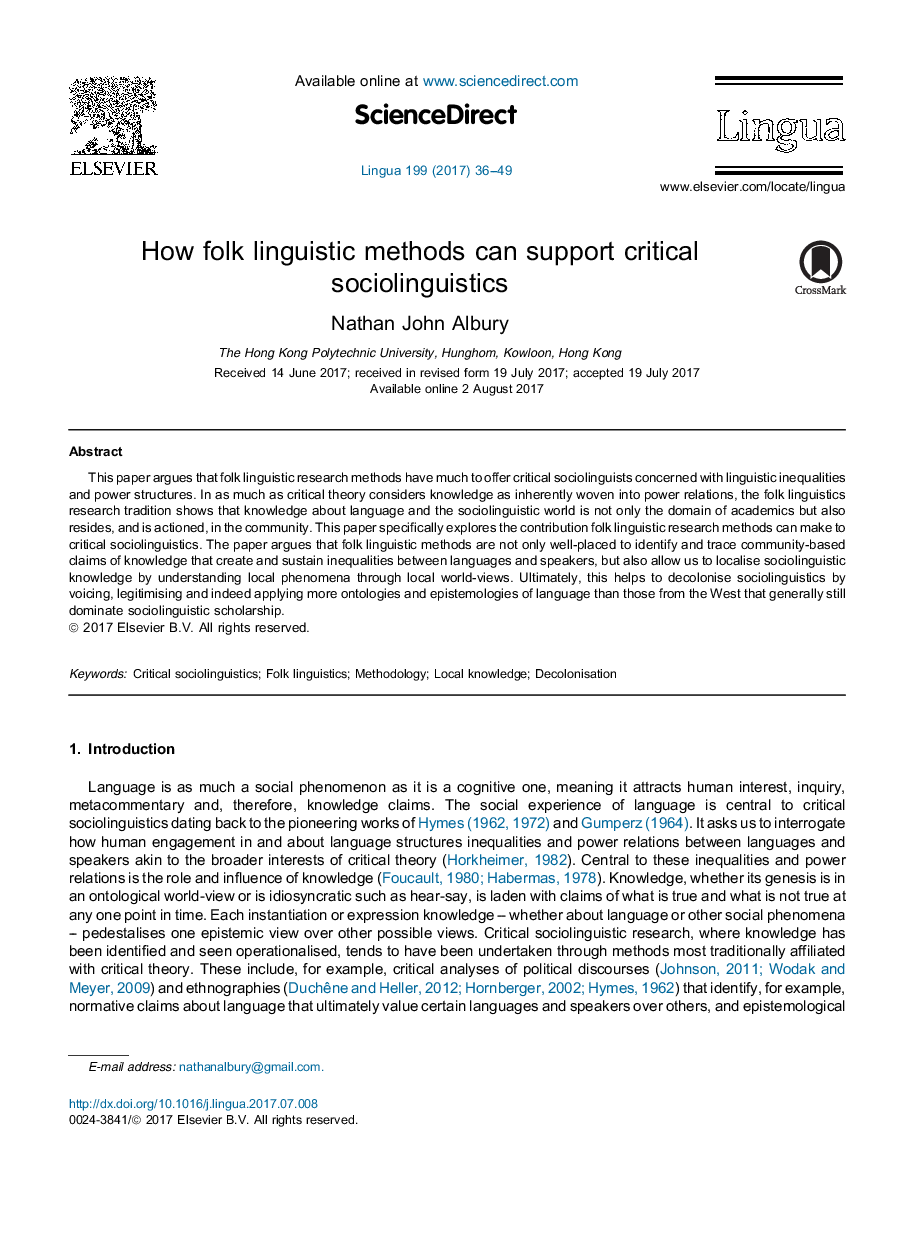| Article ID | Journal | Published Year | Pages | File Type |
|---|---|---|---|---|
| 7298466 | Lingua | 2017 | 14 Pages |
Abstract
This paper argues that folk linguistic research methods have much to offer critical sociolinguists concerned with linguistic inequalities and power structures. In as much as critical theory considers knowledge as inherently woven into power relations, the folk linguistics research tradition shows that knowledge about language and the sociolinguistic world is not only the domain of academics but also resides, and is actioned, in the community. This paper specifically explores the contribution folk linguistic research methods can make to critical sociolinguistics. The paper argues that folk linguistic methods are not only well-placed to identify and trace community-based claims of knowledge that create and sustain inequalities between languages and speakers, but also allow us to localise sociolinguistic knowledge by understanding local phenomena through local world-views. Ultimately, this helps to decolonise sociolinguistics by voicing, legitimising and indeed applying more ontologies and epistemologies of language than those from the West that generally still dominate sociolinguistic scholarship.
Related Topics
Social Sciences and Humanities
Arts and Humanities
Language and Linguistics
Authors
Nathan John Albury,
